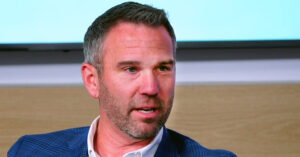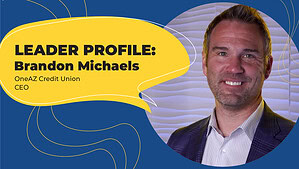We return to the studio for the Community Collaborative’s sixteenth episode. In this episode, we are accompanied by incredible movers and shakers in the Arizona community who are doing their part to lead and inspire others toward a more equitable and inclusive future. By coming together and having these imperative conversations, not only can we raise awareness around important issues, but we can move the needle forward.
In this episode, we explore Arizona’s local CEOs’ role in pushing for diversity and inclusion. While many people look toward politics and policymakers as the leaders for change, today’s featured guests help shed light on the influential role leaders in business can play. Today’s conversations are yet another reminder that we can all take part in creating the solutions that will help shape the future.
Community Collaborative co-host/producer and Black Chamber of Arizona CEO Robin Reed returns to help guide today’s discussion, reflect on current events, and share actions we can take to head in a positive direction. He is joined by two featured guests who offer their perspectives on the current status of diversity and inclusion in the business community and steps CEOs can take to continue moving the needle forward. Follow along as Reed has these honest and inspirational conversations with Neil Giuliano, President and CEO of Greater Phoenix Leadership, and Shiva Birdi, MD, Chief of OncoMedicine and Physician Executive at Banner Health.
Additionally, the week includes meaningful conversations with two of our local partners. Idara Ekpoh, Diversity and Inclusion Analyst at Banner Health, leads the discussion surrounding how to approach the increasing Xenophobia, especially around Asian Americans, in the healthcare industry. Additionally, Manny Garcia, Employee Experience Specialist at Arizona Federal Credit Union, offers his insights regarding effective implementation and engagement of employee resource groups.
Don't Miss These Highlights
The episode kicks off with a look at conversations currently in the hot seat. In particular, Reed provides insight to the recent controversy surrounding the decision to stop production of six Dr. Suess books for racist and insensitive depictions (2:12). Reed shares a reminder that there is a difference between introspection and cancel-culture. “We have to be very careful that we don’t punish progress,” he reminds us (3:53).
Giuliano joins the conversation to provide insight into the current state of business leaders putting action behind diversity and inclusion efforts (18:32). While the conversation has “expanded tremendously” over the past year, he notes that there is still work to be done. He adds that CEOs in the community are committed to change, but it takes a 3-step process.
He explains that the first step is education and ensuring that new CEOs first learn the history of inequities in the region. Then they can understand the role they can play in creating change (19:25). “You can’t just learn about something and then do nothing about it,” he explains (20:05). You have to look for ways that CEOs can become engaged with the community and change. Lastly, CEOs must become advocates, caring about their entire stakeholder community rather than only business shareholders (21:24).
It comes down to engagement and commitment. Giuliano reminds us of the importance of self-reflection. Only then can you engage with the broader community to advance efforts toward change (22:50). While policymakers and business leaders are both needed to make lasting change, the corporate community has the power to influence politics. “Culture leads and politics follow,” Giuliano reminds us (23:17).
He expands upon this idea by noting how making change is an all-hands-on-deck mission. “Everyone has to be open to change and evolving for the betterment of society,” he says. We can’t ignore the polarization that is still present in our society (25:03). Again, you need leaders willing to stand up and put in the hard work if lasting change is the goal.
When it comes to CEOs setting the tone for change, not everyone has to “start at the same place,” Reed adds (26:03). While there is more work to be done, if businesses can get on the right track and take the right actions, it’s a step in the right direction.
The Power Of Belonging
Ekpoh joins us from Banner Health to share an inside look at how the healthcare company is working to provide a safe space for employees to have open and honest conversations that can help the healthcare industry progress when it comes to diversity and inclusion. In particular, Ekpho offers insight surrounding xenophobia and how it is rearing its head in the healthcare industry. She defines xenophobia as an “ irrational fear of people from different countries” and explains the rise of attacks on Asian Americans in the wake of the COVID-19 pandemic (5:58).
“It’s not enough to just say ‘Oh, I know this is a bad thing,” she points out. It’s imperative for there to be inspired action behind those thoughts if change and progress are going to occur (6:22). She shares recent conversations happening at Banner Health regarding xenophobia and their impact on various communities, expressing the importance of educating people on the topic.
She emphasizes that there needs to be “an open space” where people can share their experiences and emotions, noting how such raw and honest conversations serve as an educational experience for all (6:44). Ekpoh emphasizes how change is dependent on taking action, including taking part in such conversations and “seeking to understand the things that aren’t in your bubble” (7:22).
It all comes down to building a sense of community where people can feel comfortable sharing their experiences and engaging in these conversations. Building a sense of connection is an essential step in determining and carrying out plans of action to get us one step closer to our desired results (8:30). As Ekpoh makes clear, building these opportunities for community and education is imperative to any workplace culture.
Dr. Birdi, also of Banner Health, joins the conversation to discuss the racial and ethnic disparities in the healthcare industry. Such disparities are “systematic differences in health outcomes and status of different populations,” and they go beyond race and ethnicity. Birdi points out how we can trace these inequities back to include factors such as socioeconomic status and location (10:27).
Within Arizona’s healthcare industry, Birdi celebrates the progress being made, noting “our newer generation [has] a drive and engagement that [has not been] experienced before” (11:16). A big part of this, he explains, is a sense of increased connectedness through platforms like social media. There is more of “a sense to create change” as they are inspired by what they witness in the world around them (13:02). Ekpoh agrees with Birdi, emphasizing the sincere desire for engagement in the younger generations (13:54).
Actions We Can All Take
Arizona Federal Credit Union’s Garcia joins us as our Rally Point Partner to express the power of employee resource groups when it comes to “giving historically underrepresented groups a voice.” He further explains how a lot of engagement, networking, and professional development comes through these groups, noting actions companies can take to make the best of their ERGs (15:28):
- – Create a pipeline of communication from ERGs to executive members to allow conversations to turn into actionable items for change and equity.
- – Encourage young professionals to join ERGs as they give them a platform to make their voices heard and be more confident in their engagement.
- – Engage in conversations with ERGs. Listen to their feedback and suggestions as a way to better tailor employee experiences.
- – Use ERGs as a way to gather insight regarding employee experiences rather than make assumptions.
- – Use ERGs as a pipeline to community engagement, reaching a variety of local communities in purposeful ways.
“We’re making progress,” Reed concludes (30:28). However, this episode serves as yet another reminder of the power of community and collaboration when it comes to setting the standard for the future. If change is the goal, we all need to recognize our role in making that possible.
While there is no one size fits all approach, leaders need to educate themselves and others continuously, engage with the community, and take a stand for the future we want. As this episode made clear, those who wish to take action show up ready to work with fresh ideas and a passion for implementing inclusion.
About The Community Collaborative
Community and business leaders and individuals who want to educate themselves on diversity issues will find the series informative and educational. And anyone who wishes to get involved will have ready access to resources featured in each program.
The video series may be streamed for free through the STN app. Viewers may subscribe through STN’s website or by downloading the STN app on the App Store or Google Play.
Each program in the series will provide details on how to get involved in featured activities and initiatives. To be featured in “The Community Collaborative” series or other STN programming, contact us at 480.967.7088.
Every day, there are leaders on the front lines of the fight to improve life in our community. STN provides the platform to tell their and their communities’ stories with video series on leadership philosophies and active efforts to make positive change in our region.





